Gaviria's dramatic comeback brings fourth Giro d'Italia stage victory
'They send me to the gym, but I don't go. Don't tell anyone.'
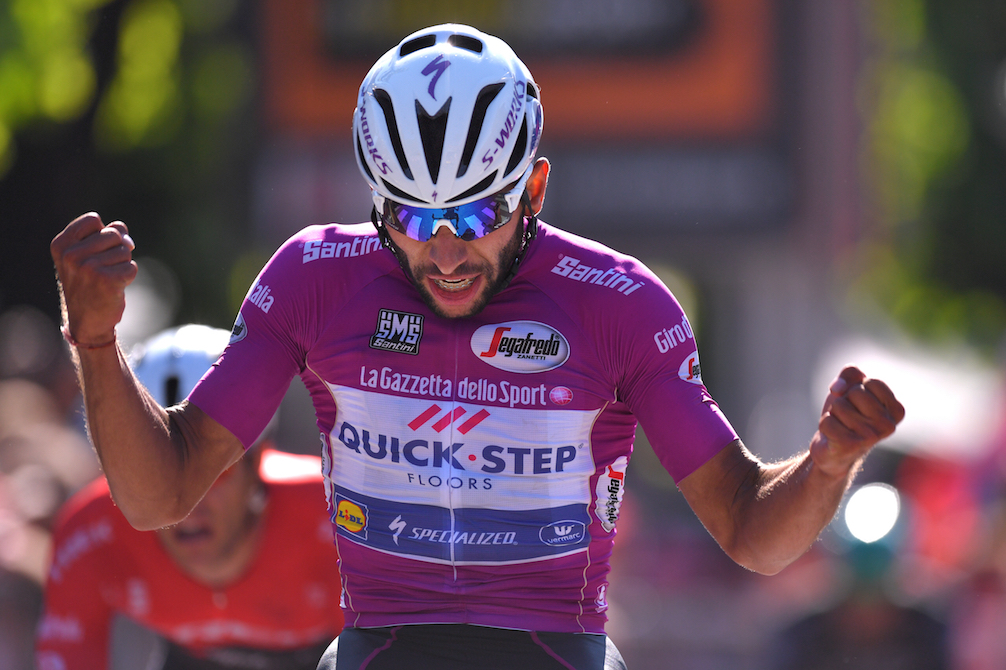
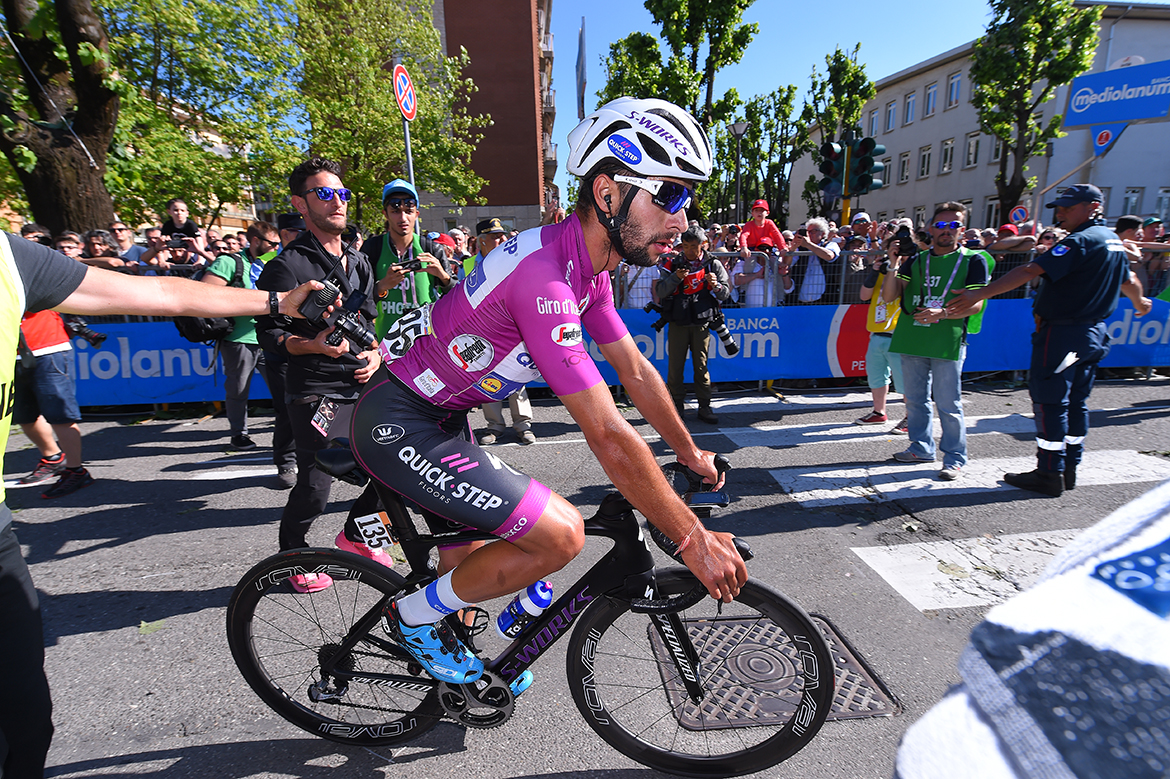
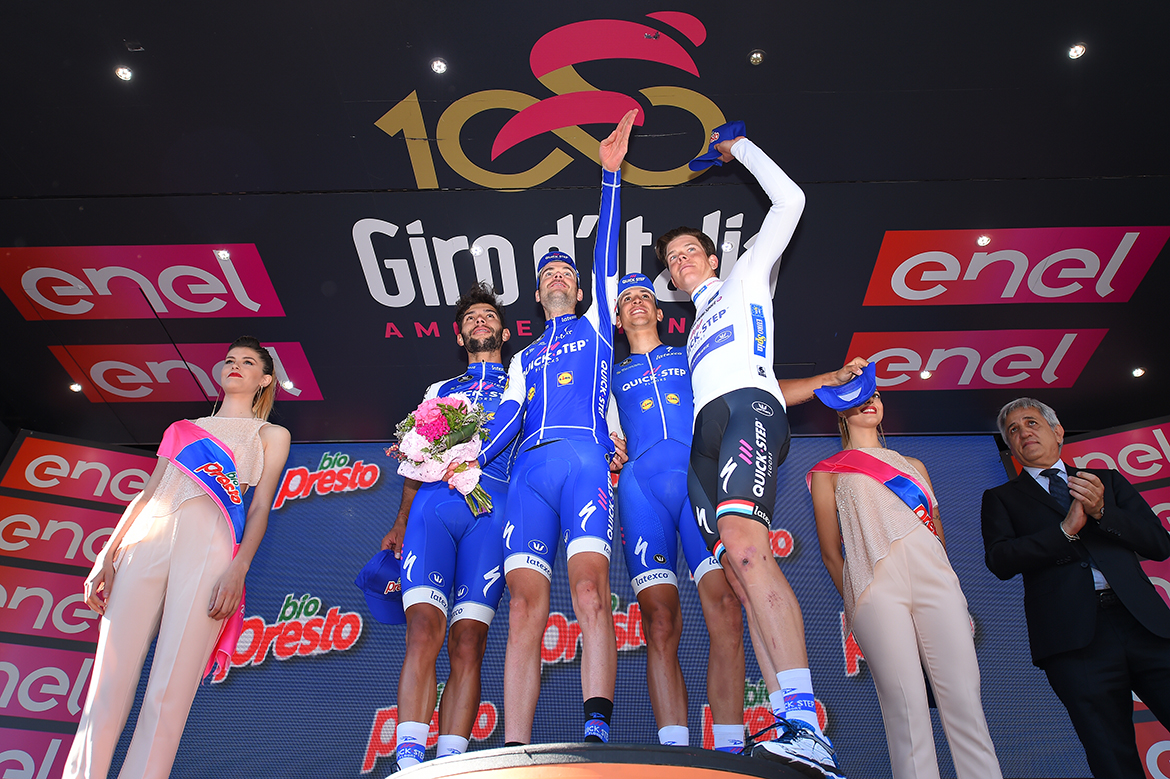
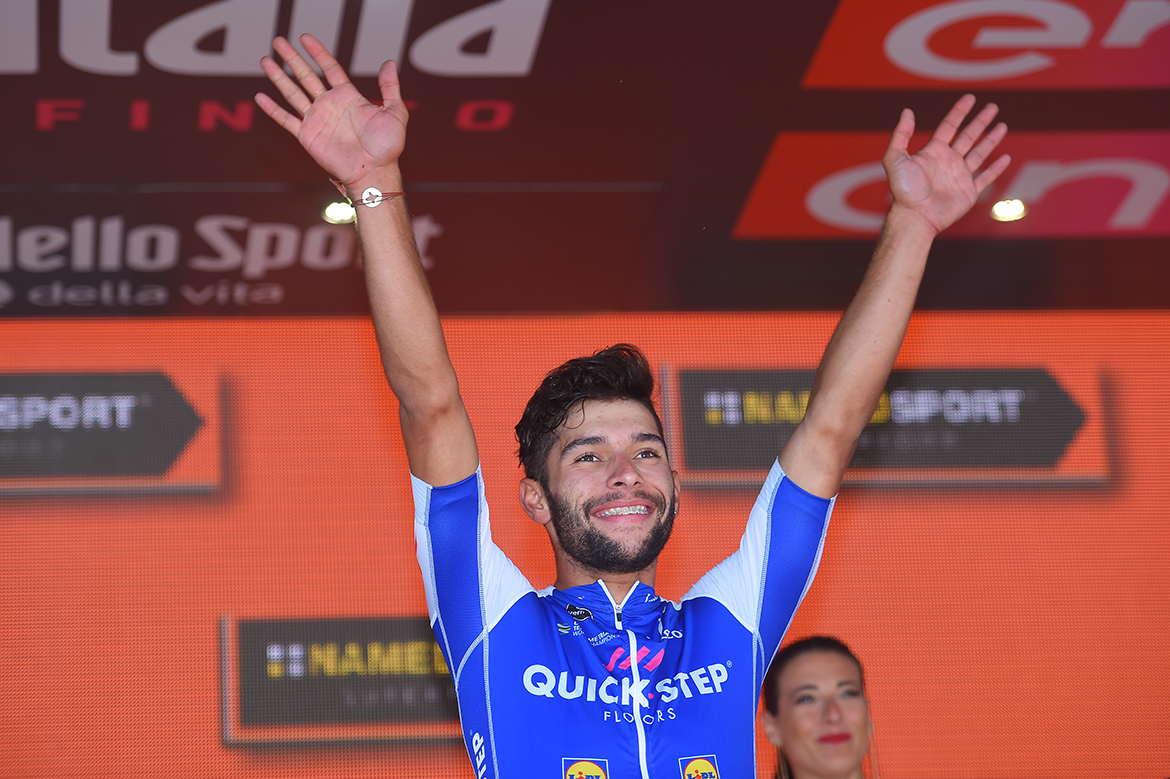
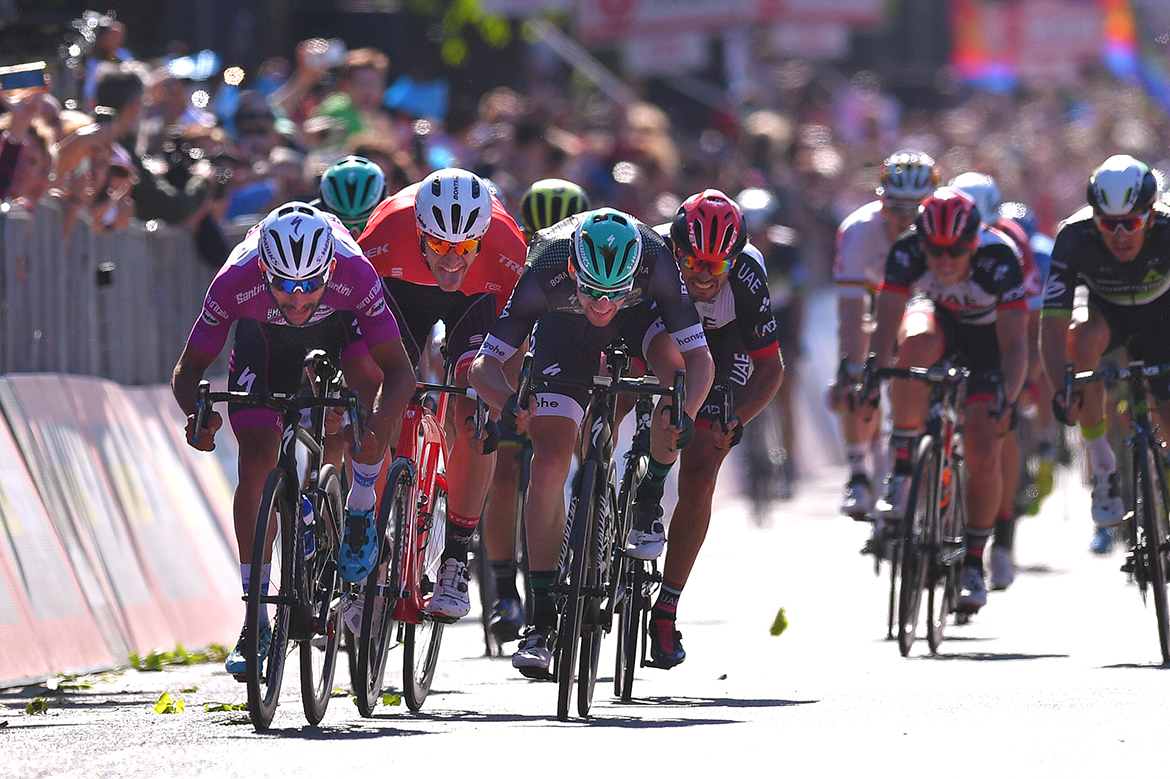
After climbing the four flights of stairs that led to the cramped press conference room in Tortona, Fernando Gaviria (Quick-Step Floors) announced his arrival by pausing in the landing and letting out an exaggerated exhalation. Those steps might well have been the only thing that posed a challenge to him on stage 13 of the Giro d'Italia.
A day before the Giro celebrates the late Marco Pantani's comeback at Oropa in 1999 – he caught and passed 49 riders en route to victory there, though Pantani would be sent home from the race a week later due to a high haematocrit – Gaviria produced a spectacular rimonta of his own in the finishing straight on Corso Cavour.
Already winner of a hat-trick of stages, Gaviria's situation seemed hopeless as the sprint began, but the Colombian somehow came from thirteenth wheel on the final bend to surge forward and take the spoils ahead of Sam Bennett (Bora-Hansgrohe) and Jasper Stuyven (Trek-Segafredo).
"It wasn't impossible, but I didn't believe I could win," Gaviria said. "We were a long way back when the sprint began but the only thing I could do was try. It's the first time I've won a race like that in my career. We felt like the race could be a war today and in the end, we won our battle, so I'm very happy."
It proved to be a fraught final 200 metres, as Quick-Step Floors' Max Richeze made contact with Caleb Ewan (Orica-Scott) after first allowing just enough room for Gaviria to squeeze between him and the right-hand barrier. Richeze was forced to unclip to stay upright as he brushed against Ewan, but Gaviria simply swooped past them, and then came around Bennett within sight of the line. "Cycling is a contact sport when it's a sprint," Gaviria said. "The only thing you can do is stay calm, follow your tactics and try to do as clean a sprint as possible."
Gym work and Monuments
This fourth stage win further strengthens Gaviria's lead atop the points classification, and while many sprinters are expected to leave the race now that there are no more flat stages left, the 22-year-old has pledged to defend his maglia ciclamino all the way to the finish in Milan. Indeed, on landing his second win of the race in Messina on stage 5, Gaviria grandly proclaimed that finishing the Giro would see him turn from "Fernando the Boy to Fernando the Man."
One might imagine that a gym programme forms part of Gaviria's maturation as a sprinter, but he simply shrugged when asked to provide examples of the work he does off the bike. "I only train on the bike," Gaviria said, and then deadpanned: "They send me to the gym alright, but I never go. Don't tell anyone."
The latest race content, interviews, features, reviews and expert buying guides, direct to your inbox!
Another question, about his maximum power output, was met with similar indifference. At least in public, Gaviria is happy to present the image of a rider who relies on instinct rather than on science. "To be honest, I never really check it," he said. "Last time I checked was at the Vuelta a San Juan back in January, and I think it was around 1700 Watts."
Gaviria was more precise, however, when asked what, if anything, could compensate for the disappointment of missing out on a medal in the Omnium at the Rio 2016 Olympics. World champion in the discipline in 2015 and 2016, Gaviria reiterated that his track career is over, and that his sole focus now is on accumulating titles on the road.
"Three Monuments would make up for it," Gaviria said, and then added: "Oh, and a World Championships."
Who would bet against it?

Barry Ryan was Head of Features at Cyclingnews. He has covered professional cycling since 2010, reporting from the Tour de France, Giro d’Italia and events from Argentina to Japan. His writing has appeared in The Independent, Procycling and Cycling Plus. He is the author of The Ascent: Sean Kelly, Stephen Roche and the Rise of Irish Cycling’s Golden Generation, published by Gill Books.